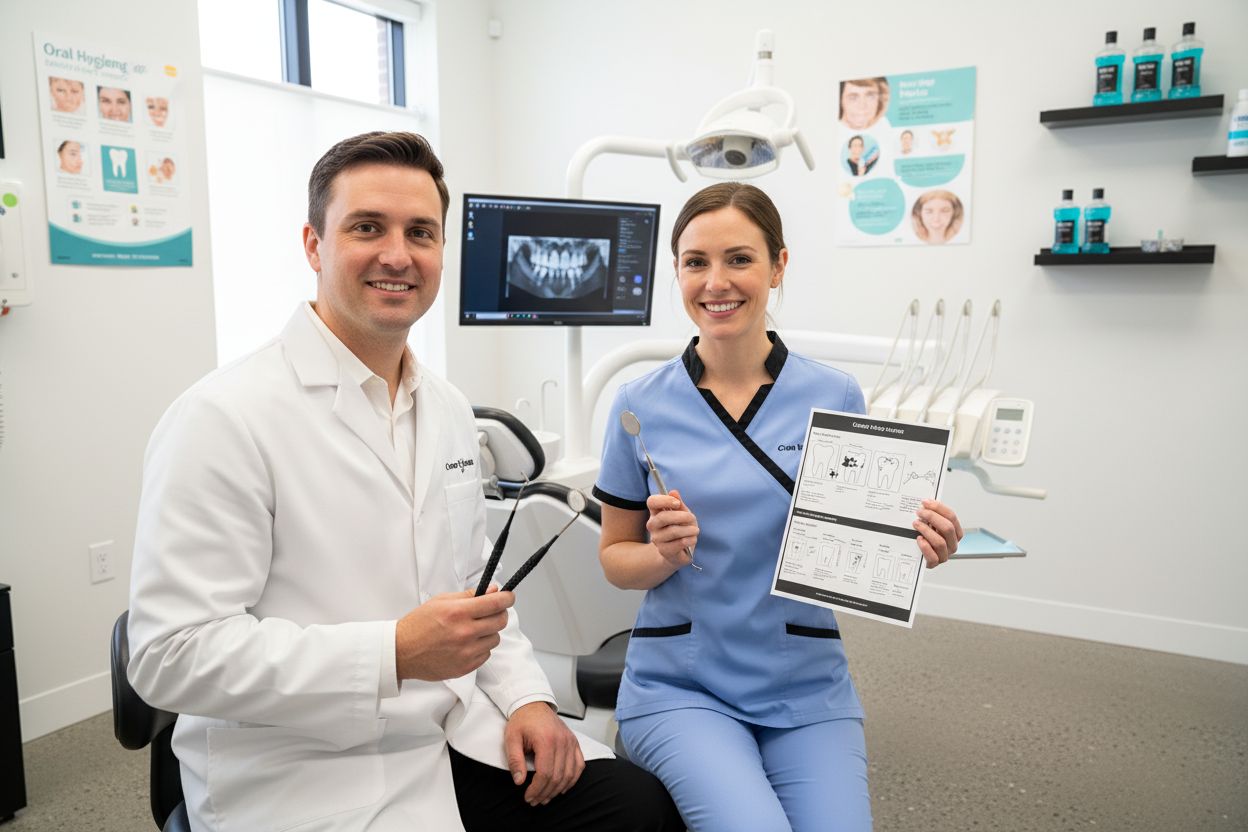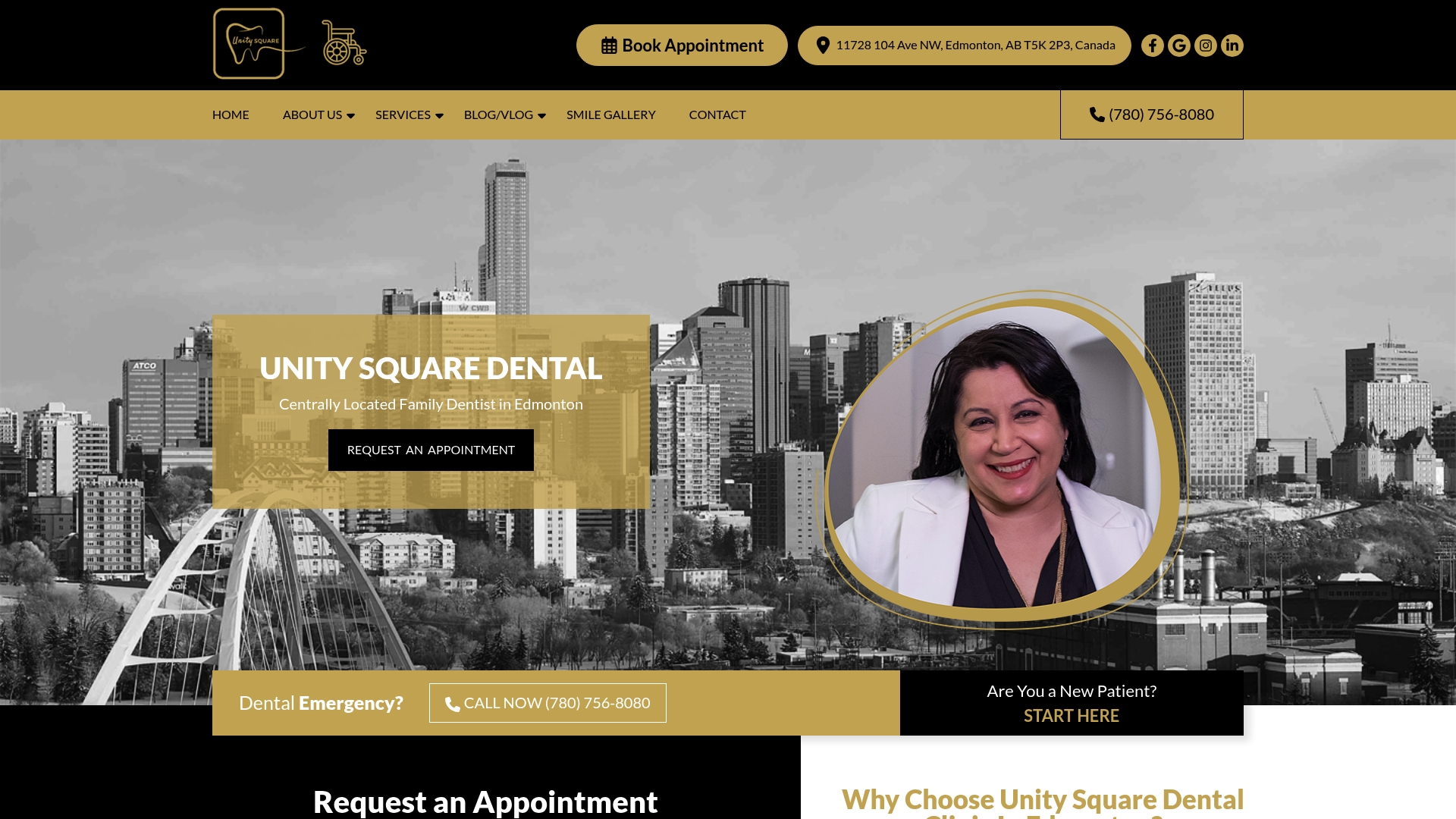
Did you know that over 65 percent of adults see a dental hygienist for preventive care each year, while only visiting a dentist for more complex treatments? Understanding the difference between these two professionals can help you take charge of your oral health. Knowing who does what means you get the right care at the right time, which leads to a healthier smile and fewer surprises in the dental chair.
Key Takeaways
| Role | Description |
|---|---|
| Dentists | Dentists are extensively trained to diagnose dental diseases, perform complex treatments, and develop comprehensive care plans. |
| Dental Hygienists | Dental hygienists focus on preventive care, including teeth cleaning and patient education, with a shorter educational path. |
| Scope of Practice | Dentists perform surgical procedures and manage complex cases, whereas hygienists emphasize maintenance and preventive services. |
| Insurance Considerations | Coverage varies significantly between dental professionals, with hygienist services often being more fully covered for preventive care. |
Table of Contents
- Defining Dentists And Dental Hygienists
- Education And Professional Training Requirements
- Scope Of Practice And Key Responsibilities
- Patient Experience And Appointment Differences
- Costs, Insurance, And Accessibility Considerations
Defining Dentists and Dental Hygienists
When you walk into a dental clinic, you’ll encounter two primary oral health professionals who play distinct yet complementary roles: dentists and dental hygienists. While they both contribute to maintaining your oral health, their responsibilities, training, and scope of practice differ significantly.

Dentists: The Comprehensive Oral Health Experts
Dentists are the most extensively trained oral health providers in a dental practice. According to research from the Oral Health Workforce, they are responsible for:
- Diagnosing complex oral diseases
- Developing comprehensive treatment plans
- Performing surgical and restorative procedures
- Providing advanced patient education
- Referring patients to specialized healthcare professionals
Dental Hygienists: Prevention and Maintenance Specialists
Dental hygienists are licensed professionals focused on preventive care and patient support. As Wikipedia research indicates, they typically hold associate’s or bachelor’s degrees in dental hygiene and independently provide essential services such as:
- Conducting initial patient assessments
- Performing professional teeth cleaning
- Applying preventive treatments like fluoride
- Educating patients about oral hygiene practices
- Screening for potential oral health issues
Learn more about our dental team’s unique approaches to understanding your specific oral health needs.
Education and Professional Training Requirements
Becoming a dental professional requires extensive and specialized education, with distinct pathways for dentists and dental hygienists. Each role demands rigorous academic preparation and hands-on training to ensure comprehensive patient care.
Dentist Educational Journey
The path to becoming a dentist is comprehensive and demanding. According to research from dental education sources, the typical educational trajectory involves:
-
Completing a four-year undergraduate degree
-
Attending four years of dental school
-
Earning either a Doctor of Dental Medicine (DMD) or Doctor of Dental Surgery (DDS) degree
-
Passing national and state licensing examinations
-
Potentially completing additional specialized residency training
Dental Hygienist Professional Preparation
Dental hygienists follow a more focused educational path. As Wikipedia research indicates, their training typically includes:
- Obtaining an associate’s or bachelor’s degree in dental hygiene
- Studying critical subjects such as:
- Human anatomy
- Pharmacology
- Radiography techniques
- Periodontology
- Clinical dental hygiene practices
- Registering with appropriate regulatory bodies before practicing
Explore our comprehensive dental team training approaches to understand how we ensure exceptional patient care through continuous professional development.
Scope of Practice and Key Responsibilities
The roles of dentists and dental hygienists are carefully defined to ensure comprehensive and specialized oral healthcare delivery. While their responsibilities intersect, each professional brings unique skills and expertise to patient care.
Dentists: Comprehensive Oral Healthcare Providers
According to research from dental practice sources, dentists have a broad and complex scope of practice that includes:
- Diagnosing complex oral diseases and conditions
- Performing surgical and restorative dental procedures
- Developing comprehensive treatment plans
- Prescribing medications
- Administering dental anesthesia
- Executing cosmetic and reconstructive dental interventions
Dental Hygienists: Preventive Care Specialists
Dental hygienists play a critical role in maintaining oral health through preventive and therapeutic approaches. As research from professional dental publications indicates, their responsibilities encompass:
- Conducting comprehensive oral health assessments
- Performing professional teeth cleaning procedures
- Applying preventive treatments
- Executing scaling and root planing techniques
- Providing patient education on oral hygiene
- In some progressive jurisdictions, independently administering local anesthesia
Learn more about our dental team’s specialized approaches to understanding your unique oral healthcare needs.
Patient Experience and Appointment Differences
Navigating dental care involves understanding the distinct yet complementary roles of dentists and dental hygienists. Each appointment type offers unique benefits tailored to your specific oral health needs, ensuring comprehensive and personalized care.
Dental Hygienist Appointments: Preventive Focus
According to research from professional dental publications, hygienist appointments are primarily centered on preventive care and maintenance. Typical experiences include:
- Professional teeth cleaning
- Periodontal health assessments
- Oral hygiene education
- Early detection of potential dental issues
- Personalized preventive treatment recommendations
Dentist Appointments: Comprehensive Treatment
In contrast, dental practice research reveals that dentist appointments are more complex and treatment-oriented. These visits typically involve:
- Comprehensive oral disease diagnosis
- Detailed treatment planning
- Restorative and surgical interventions
- Advanced medical assessment of oral health
- Prescription of targeted treatment protocols
Check out our essential patient care guidelines to help you prepare for and maximize your dental appointments.
Costs, Insurance, and Accessibility Considerations
Navigating the financial landscape of dental care can be complex, with different professionals and services impacting your overall healthcare expenses. Understanding the nuanced cost structures and insurance considerations helps you make informed decisions about your oral health.
Here’s a summary comparison of dentists and dental hygienists:
| Criteria | Dentists | Dental Hygienists |
|---|---|---|
| Education | 8+ years DMD or DDS degree |
2-4 years Associate’s or Bachelor’s degree |
| Main Role | Diagnosis Treatment Surgical procedures |
Prevention Maintenance Patient education |
| Typical Services | Fillings Root canals Extractions |
Cleanings Fluoride treatments Oral exams |
| License Required | Yes State/national exams |
Yes Registered with regulatory body |
| Insurance Coverage | Major procedures More documentation |
Mostly preventive Often covered |
Insurance Coverage for Dental Services
Research highlights significant variations in dental service coverage. Insurance plans often differentiate between services provided by dentists and dental hygienists:
- Preventive hygienist services might be partially or fully covered
- Complex dental procedures typically require more extensive insurance documentation
- Coverage levels vary based on specific plan structures

- Some plans offer tiered reimbursement for different dental professionals
Accessibility and Cost-Effective Care
According to international healthcare research, dental care accessibility depends on multiple socioeconomic factors. Key considerations include:
- Variations in insurance coverage across different regions
- Out-of-pocket costs for specialized treatments
- Availability of dental healthcare providers
- Income-related barriers to comprehensive dental care
Explore our comprehensive guide to managing dental insurance costs and maximize your healthcare benefits effectively.
Discover the Right Dental Care for Your Needs at Unity Square Dental
Are you trying to understand the difference between a dentist and a dental hygienist so you can make better decisions for your oral health? If this article left you wondering how to access both preventative care and full treatment under one roof, you are not alone. Many patients feel anxious or confused when choosing between routine cleanings, advanced procedures or personalized guidance about oral health. Your comfort and long-term health depend on getting the right care from the right professional when you need it most.

Experience peace of mind at Unity Square Dental, where our dedicated team of dentists and hygienists work together to deliver personalized solutions. We use advanced technology and create a welcoming atmosphere, so every appointment—from routine hygiene to complex dental procedures—feels seamless. Want to know how your first visit works? Review our patient care guidelines and meet the professionals who make your comfort and results their top priority. Book your appointment today through our main site at Unity Square Dental and take the first step toward confident, complete dental care.
Frequently Asked Questions
What is the main difference between a dentist and a dental hygienist?
Dentists are responsible for diagnosing oral diseases and performing complex procedures, while dental hygienists focus on preventive care and patient education, such as cleaning teeth and guiding proper oral hygiene practices.
What kind of education is required to become a dentist?
To become a dentist, one typically must complete a four-year undergraduate degree followed by four years of dental school, earning a Doctor of Dental Medicine (DMD) or Doctor of Dental Surgery (DDS) degree, and passing licensing examinations.
What services do dental hygienists typically provide?
Dental hygienists provide preventive care services, including professional teeth cleaning, oral health assessments, applying fluoride treatments, and educating patients on oral hygiene techniques.
How do dental appointments differ between a dentist and a dental hygienist?
Dental hygienist appointments focus on preventive care like cleanings and assessments, while dentist appointments may involve diagnosing complex conditions and conducting surgical or restorative treatments.
Recommended
- Understanding the Difference Between Dental Hygienist and Dentist – Unity Square Dental
- Dental Care for Families in Edmonton: Your 2025 Guide – Unity Square Dental
- Dental Cleaning Frequency: Best Advice for Edmonton Families 2025 – Unity Square Dental
- What Is a Family Dentist? Guide for Edmonton Families 2025 – Unity Square Dental
- Understanding Your Guide to Dental Sedation Options – Vacaville Aesthetic Dentistry & Implants
- What is Comprehensive Dental Care? Understanding Its Importance – Vacaville Aesthetic Dentistry & Implants

